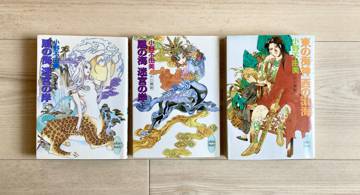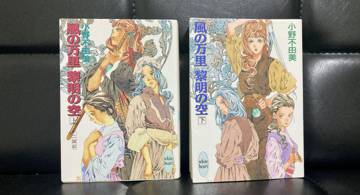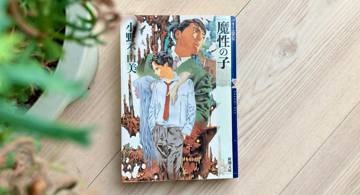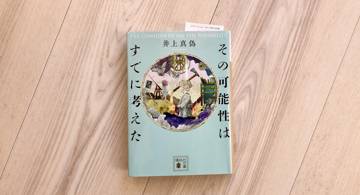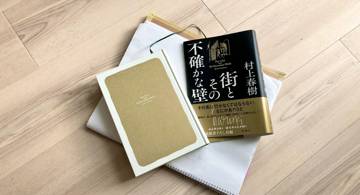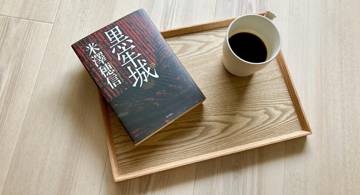Overview
I borrowed it from a friend and read it. Here are the summary and my thoughts.
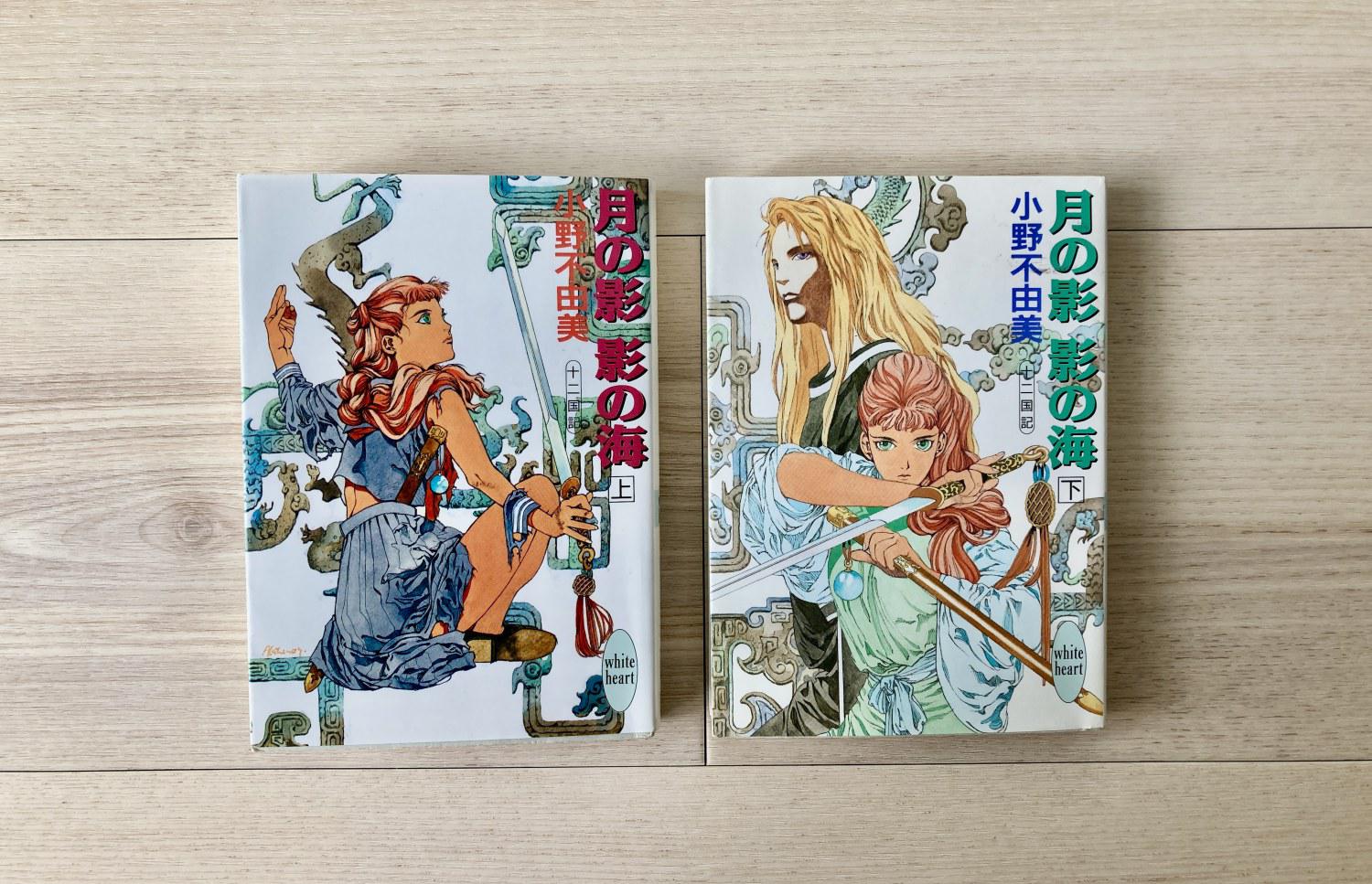
Summary
- In the 6th year of the Yosei era, May, in the Kingdom of Kei. The king of the country is known as Kei-ou (it gets confusing because the characters for the name change). The king before was a queen named Jokaku. It seems she was not suited to be a monarch, and after 6 years of reign, she passed away.
- In the 7th year of the Yosei era, January, the Saiho (prime minister), who is also a Kirin named Keiki, was searching for the next king and finally finds a high school girl from Japan, Youko. He has no doubt she is the next monarch!
- Suddenly, the king of Koukoku, a kingdom not doing well under its current reign, who cannot stand to see other countries prosper, plots to kill Youko and ruin Kei. He orders his Saiho's Kirin, Koulin, to send demons to kill her. Kirin, being noble creatures, suffer greatly from doing such vile acts, leading to Shitsudou (falling ill due to being forced into committing heinous deeds). It's pitiful.
- For the average high school girl Youko, being in a different world where all common sense is reversed, attacked by demons, and facing strong discrimination against Kaikyaku (people from other worlds) in Koukoku, the situation is too harsh, especially since Keiki, who was supposed to guide her, gets captured by the king of Koukoku, leaving her to survive alone.
- Encountering those who wish to harm her and haunted by terrible illusions from her own world, Youko becomes distrustful of others. At the same time, she dialogues with her own fears and doubts, forging her inner strength. (The depiction here is really good.)
- Eventually, she meets the half-beast Rakushun, a Kaikyaku named Heki Rakujin, and the king of Enkoku, Naotaka (Shouryuu), which marks the beginning of her realization that she is the next Kei-ou.
- Throughout her journey, Youko reflects deeply on her own foolishness and the poverty of human nature, struggling greatly until she finally decides to succeed Kei-ou and goes to rescue Keiki, who has been captured.
- In the 7th year of the Yosei era, July, Youko defeats the false king of the troubled Kei and, in August, changes the era name to Sekiraku, establishing the Red Dynasty.
Thoughts
I thought I had read it when I was a kid, but was it this good? I was moved, and Rakushun made me cry twice. Below are the parts I loved.
- "Then, I'll pretend to trust Rakushun until his intentions become clear," "You've really come into your own, haven't you?": The dialogue between Youko and the blue monkey is great. Initially, she was scared and would only cover her ears around him. Eventually, she decides, "He exposes even the anxieties I wasn't aware of, helping me organize my feelings." Facing reality is part of human growth.
- "Maybe I wasn't cowardly, just lazy. (…) I lived a cowardly and lazy life. So, I hope I can go back. If I return, Youko can live differently. I want to be given a chance to try.": This is also great. As humans, we tend to be satisfied with how we live at any given moment. The old Youko probably thought, "I'm cowardly, so this is just how things are." Growing up means being able to confront our past selves, seeing us from many more perspectives.
- "I thought about such things quietly while walking.": This reminds me of situations I often encounter on my camping trips. It's presumptuous to compare, but… When I experience those moments, I take notes. Because thoughts formed in those moments would be lost once I return to the warmth of my home.
- "I had no choice but to convince myself that this was some form of punishment.": I personally relate to this sentiment. It's something I often think about when resigning myself to something. Regarding grievances in relationships, I often think. I've hurt people before. If I'm being hurt now, it's because it's my punishment. That's how I "convince myself" in those moments.
- "Am I still an enemy to you?" Youko shakes her head. "Then that's good. Let's go.": And then there's Rakushun. Got me crying. No further comment needed.
- "When you came off the ship, I knew right away. Something about you just stood out," "…Me?": And Youko too. People with a firm core and upright posture stand out without doing anything. By the way, the shift from "I" to "me" as she solidifies her inner core was also a nice touch.
- "You seem to have learned a great deal. (…) You've truly changed," "Yes. I've learned a lot.": These words from Keiki to Youko, who has survived half a year of survival, resonate with the reader, who has witnessed Youko's struggles and growth. At the end of the story, Keiki's words offer a moment for the reader to reflect on the journey. "That's really true," I thought. Hats off to the narrative structure.
- "That is called the Suiguutou.": This is also a comment on the narrative structure. I love how objects that have been constantly present and taken for granted throughout the story are revealed in their significance later on.
